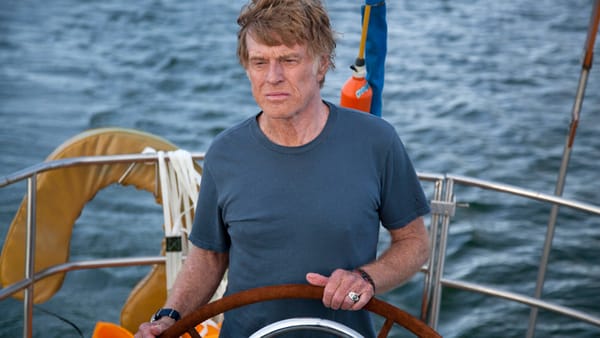Post-Modern Satire Gets Angst. It Invented Angst.
Sometimes, meaning seems meaningless. When there is neither Cat nor Cradle to be seen, how can we trust the prejudices of a taught but false reality? Kurt Vonnegut asks this question in his expansive religious and scientific satire novel, Cat's Cradle.

In 1963, American Author, Hoosier, and University of Chicago expellee, Kurt Vonnegut published Cat's Cradle. This novel stars Jonah, a man who comes to believe in the cult religion of an Island called San Lorenzo. The religion, self-acknowledges, that everything within it, is a lie. This religion is called Bokononism, named after Bokonon, whose real name is Lionel Boyd Johnson. Lionel Boyd Johnson is the character whom we rarely get to see throughout the novel, although his made-up religion is the one which weaves together the fates of the main characters involved in its plot. Tossed to and fro by violent seas in a skipper named The Lady's Slipper, Johnson reaches the island of San Lorenzo. Although, he first fights in the first world war, finds himself kidnapped by a German submarine, captured by the enemies of his capturers, the British, stranded on an island with the British when the 2nd submarine's navigation fails, leaves the island for Massachusetts, lives there a while, and then sails the world with a rich man for whom he worked while in the states. This second vessel, named Scheheherazade, after the story teller in One Thousand and One Arabian Nights, wrecks itself in the port of Bombay, leaving Johnson as the vessel's soul survivor. He then joins rank with Ghandi, and supports those who protest against British imperial rule. After his arrest and release, he ends up back in his home domain, Tobago, a British held island, the one he left to go to school in London, only to be drafted into the first world war. With the strangeness of this turn of events not being at all lost on him, he declares that he will build The Lady's Slipper Number 2, and sail the world a second time, allowing fate to drag him wherever it may so please. He arrives in Port Au Prince, Haiti, in the 1920s, when the United States Marines had taken up quite a lot of space in that country. Stationed there with a foreign army, an army connected to a land which he once lived in only for a short while, and a soldier himself, when Johnson meets McCabe, a disillusioned and exhausted Marine, they strike up a life-long friendship. Oddly, the two plan a course for Miami, a city in a country where neither have a true allegiance, but fate knowing this, they wreck upon San Lorenzo, and make it into their home.

The novel remains filled to the brim with allusions to Biblical tales, specifically one whale tale that Vonnegut had a pattern of referencing. That tale is the tale of Jonah. In the story of Jonah, this prophet receives a command from God to voyage to Nineveh, where he is to warn the Ninevites that lest they change their ways they shall surely be destroyed. Nineveh might be thought of as a kind of Sodom and Gomorrah, but one to which God grants a warning, before smiting it from the face of the earth. Jonah, frightened by the cruelty and wrath of the Ninevites, and terrified that they might condemn him as a false prophet, should they change their ways and God not destroy them, flees from God. This, does not go well. On a boat out at sea, a storm overtakes him. Realizing that Jonah caused the storm due to his disobedience, the ship's crew toss him overboard. The storm stills. All grows quiet. Then a whale eats Jonah. For three days and three nights, Jonah lives in the stomach of this great fish. A belch, and Jonah washes onto the shore, close to whence he fled, Nineveh. His struggle was all for naught. He ended up where he made to escape in the beginning of his tale. God does not destroy him for his disobedience, nor does he destroy the Ninevites. In some ways, it seems as though this entire pursuit has been fruitless. Jonah never changes his ways, and although the Ninevites do change their ways, Jonah who lies in the center of this tale, feels as though he has been cheated. He faced punishment, an aquatic purgatory, all for the salvation of a city that seemed to change its ways relatively easily. The prophet faced God's displeasure, not the fallen people.

A cat's cradle is a game played with string between fingers. One uses yarn to make a net between two hands. Once it is made, one can move their hands and demonstrate, they can show the audience the cat and the cradle. It looks like neither, frankly (but it is quite fun in a tactile sort of way). In the same way, the novel Cat's Cradle is proposes meaning nor denies the possibility of it. It grants unto the reader a plethora of symbols, which the reader finds themselves allowed to take and run with wherever they may so choose. For me, the Jonah comparison is the most fascinating point of meaning, so I choose to look at it carefully. It does not seem incidental that Johnson, Jonah, and the narrator of the story, John, but going by Jonah, all find themselves in seemingly meaningless loops of accidents which bring them neither peace nor pleasure, neither truth nor believable fiction. I would be remiss if I spoiled the ending of this novel for you. It is poignant and tragic and deeply unsatisfying, a kind of experience which one must go through on their own, like a long walk down a deserted road in the midst of winter. The ending vignette of the novel though is the reader's first picture of Bokonon. For the entire novel he remains an elusive symbol of a kind of truth and meaning making, one which is senseless due to its established quality of falsehood, but one which strives nevertheless to demarcate life as a followable path. The only real point of meaning-giving at which I can arrive is the Jonah allegory. To be a punished prophet, whose warnings go heeded, but whose prophecies thereby go unfulfilled, is a harsh task indeed. Bokonon is this kind of prophet. He tells all that his religion is one of lies, and yet, they follow him and shape their lives around his admitted cultish tomfoolery. He moves from one island to the next, his birth as coincidental as his prolific body of shipwrecks, and his entire life seems void of real, unintentional, divine purpose. Jonah/John comes to San Lorenzo as a Christian, converting to Bokononism after finding himself adrift in the island's difficult and dialectic way of existence. When he arrives there, it is due to his desire to write a human interest story, but as far as we know, he never writes that story, and he never leaves. His entire hero's journey, which makes up the plot, and his faith, which grounds his dreams and actions until the peripetia, when he converts to a faithless faith, is the opposite of growth, it is a shriveling. How can anyone find meaning in such a world, such a life, and such a novel? So many layers, and yet it is grotesque, less like a cake and more like a slab of dead meat, cruelly killed for no other purpose than the dissection itself.

I have yet to draw a concrete conclusion about the way in which Vonnegut's work evades meaning, and yet impacts me so tremendously for that very reason. I will continue to grapple with his post modernist intensity, his vise-like hold on so much multi-media literacy, his hard won wisdom, world weary though it may be. He has something to say, even if he is reluctant to say it outright. I plan to keep writing about the different works of his, next week I want to contemplate "God Bless You Mr. Rosewater," and follow that with "Slaughter House 5." I am unsure as to whether or not I will find the meaning for which I am searching, but I am comforted by the fact that Vonnegut seems filled with angst to find that meaning, while angrily protesting that everything seems meaningless anyways.





